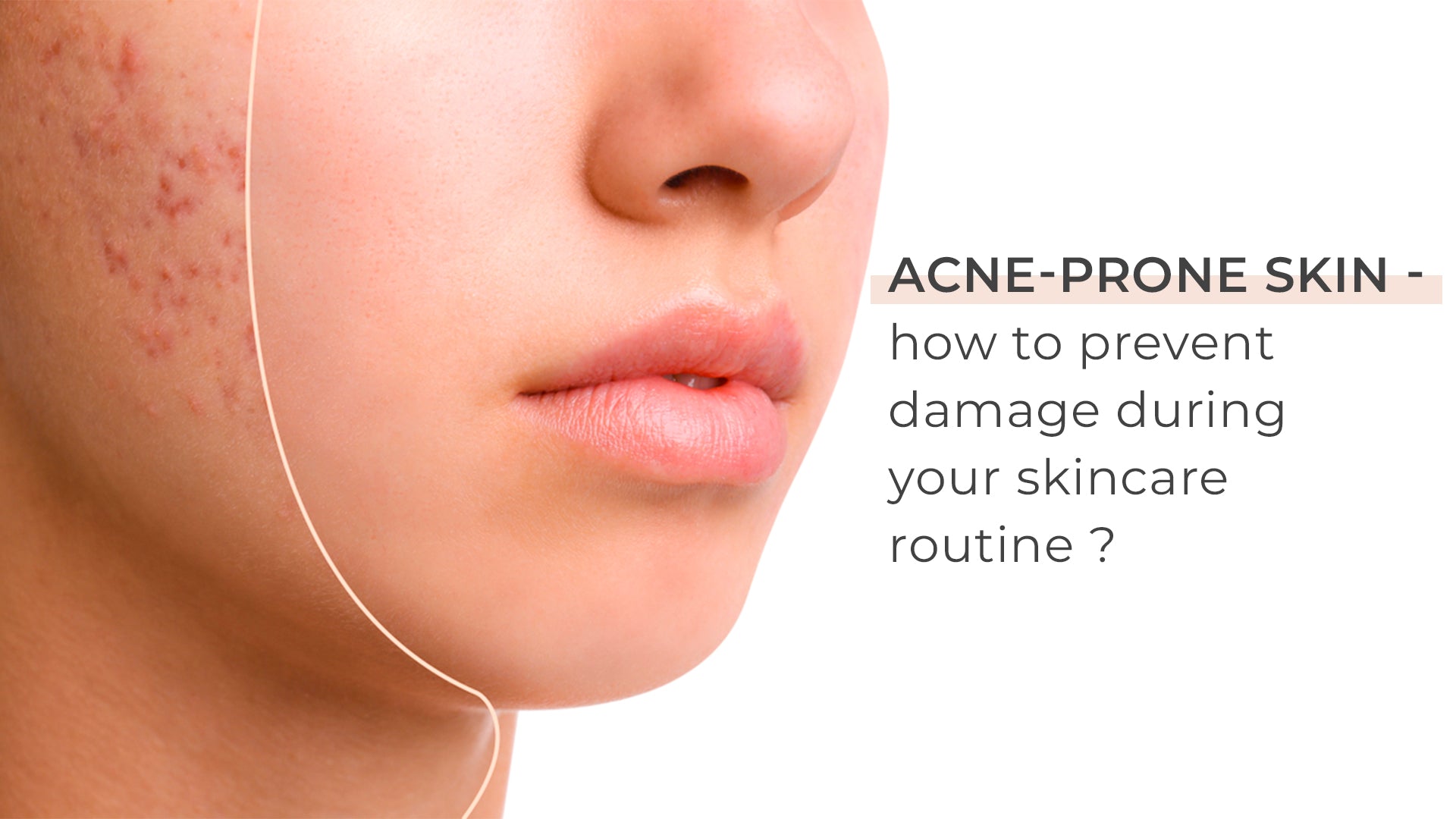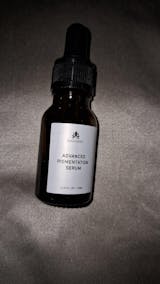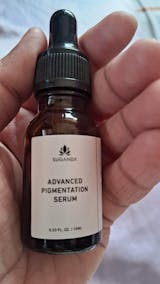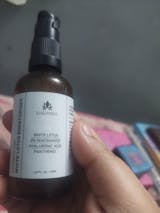Written by Dhatri
No girl likes to have pimples on her face when there is an essential day in her life. She needs glowing and clean skin, which makes her look best. So, here I come up with an article that defines what acne-prone skin is and gives you tips on how to prevent damage during your skincare routine.
Meaning of Acne-Prone skin.
Acne-prone skin is a chronic skin condition and a long-term problem that requires months and years of treatment to manage the skin. The problem not only occurs on the face but also on the chest, back, neck, and shoulders.
Cause of acne.
There are many reasons for acne-prone skin, as follows:
- Clogged hair follicles occur due to an accumulation of dead skin cells, bacteria, and oil in the skin.
- Improper diets and stress can breakout the skin.
- Allergic reaction due to makeup.
- Dirt, pollution, and poor skincare habits lead to clogged pores in the skin.
How to prevent damage to acne-prone skin through a skincare routine.
Preventing damaged or acne-prone skin does not mean using different skincare products, it means improving your skincare routine to have better skin.
-
Keep it clean
Wash your face at least twice a day before sleep and after waking up, more than twice when you are sweating.
You can use cleansers without any active ingredients as they clean the face and treat acne-prone areas.
-
Be gentle with your skin.
Do not scrub hard on your skin as it reddens and irritates the skin. Be gentle with it and pick mild scrubs to use.
-
Apply moisturiser
You will wonder why moisturiser as your skin is oily. It needs to because acne treatment dries the skin, hydrates the skin, and makes natural skin moisturiser essential. While picking up a moisturiser, it should be oil-free and noncomedogenic.
-
Stay hydrated
Hydrated skin aids in the fight against oil production, so drink at least 8 to 10 glasses of water per day.
-
Don't wear heavy makeup.
Makeup is a product that clogs pores in the skin and leads to acne when it's oily and heavy, so do not wear makeup as part of your skincare routine.
-
Don't pop your pimples.
Never pick or pop your pimples because it makes skin worse and scarring, and bacteria transfers to other pores, leading to having more acne.
-
Deal with acne
An effective skincare routine can reduce acne symptoms and breakouts, but there is no solution to fix it quickly. It takes three months to a year for acne-prone skin treatment. Taking care of your skin is the best way to prevent damage to your skin.
Bonus tip-
While you are picking up a cleanser and moisturiser for the treatment of acne, consult your dermatologist to know if the product you pick up is suitable for your skin. Because the wrong product causes more problems than normal problems.
References:
@HenryFordNews. “Acne-Prone Skin? How To Prevent Damage During Your Skincare Routine | Henry Ford LiveWell.” Acne-Prone Skin? How To Prevent Damage During Your Skincare Routine | Henry Ford LiveWell, www.henryford.com, 20 July 2021, https://www.henryford.com/blog/2021/07/acne-prone-skin#:~:text=Do%20wear%20SPF,more%20sensitive%20to%20the%20sun.
“Skincare Bootcamp: The Evolving Role of Skincare - PMC.” PubMed Central (PMC), www.ncbi.nlm.nih.gov, 1 Dec. 2016, https://www.ncbi.nlm.nih.gov/pmc/articles/PMC5172479/.
Leyden, James, et al. “Why Topical Retinoids Are Mainstay of Therapy for Acne - Dermatology and Therapy.” SpringerLink, link.springer.com, 5 June 2017, https://link.springer.com/article/10.1007%2Fs13555-017-0185-2







 +91 9347578980
+91 9347578980

